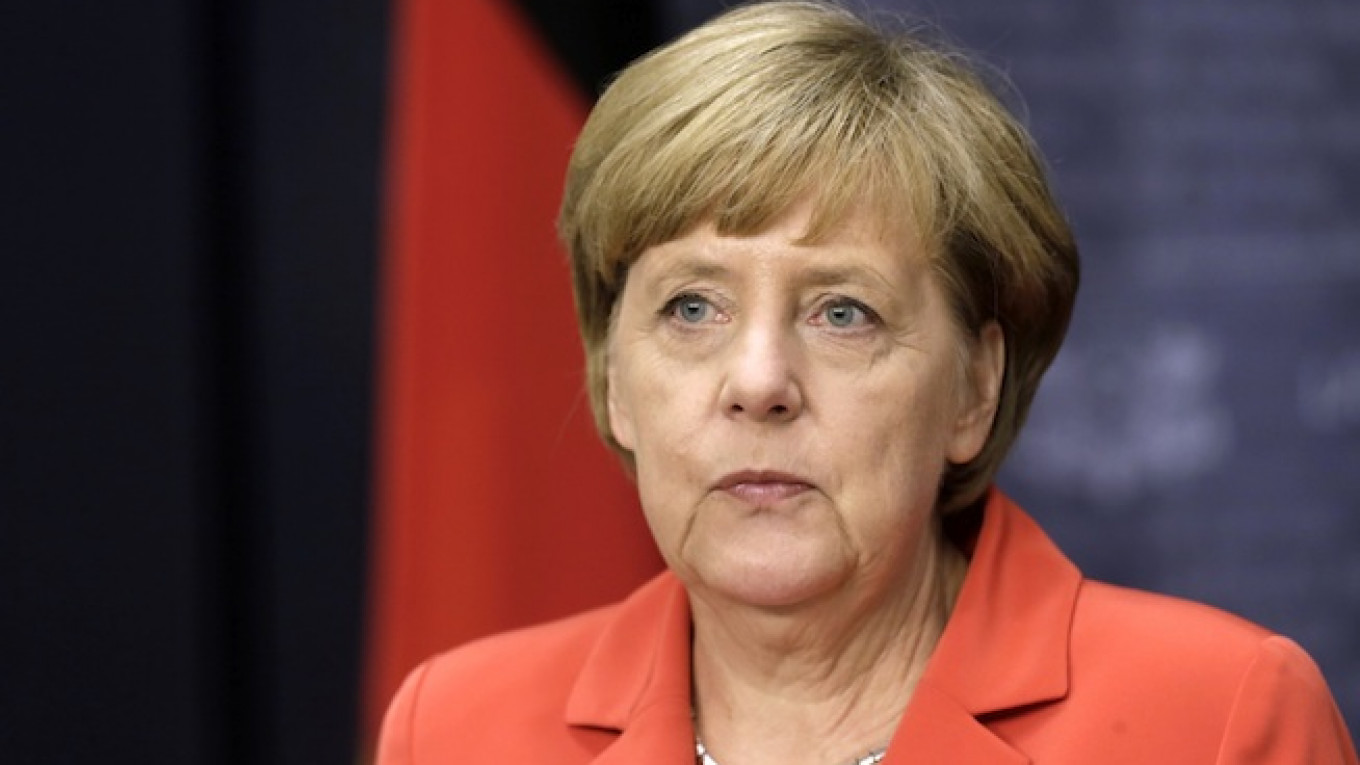RIGA — Germany's Angela Merkel has promised the Baltic states that NATO would defend them, although it would not send permanent combat troops but would increase maneuvers in the region.
Latvia, Estonia and Lithuania — former Soviet republics with their own Russian-speaking minorities — are increasingly anxious that the conflict in Ukraine and Russia's annexation of Crimea could herald destabilization in their own region by Moscow.
The Baltic states have asked for an increased NATO presence to reinforce Article 5 of the alliance's constitution, which states that an attack on one of its members is an act of aggression against all, obliging them to react.
"I want to stress that …Article 5 of the NATO contract — the duty to provide mutual support — is not something which just exists on paper, but is also something which must be filled with life," Merkel said Monday on a visit to the Latvian capital, Riga.
NATO's top commander said over the weekend that the alliance would respond militarily if Russia tried to infiltrate troops into a NATO country.
Merkel told a joint news conference with Latvian Prime Minister Laimdota Straujuma that Germany would start "air policing" flights in Latvia from Aug. 20.
"But we must also now supplement this with further exercises and maneuvers, so that we can react swiftly and without hesitation," she said. "Everything must be done so that we have the infrastructure in the Baltic states to react quickly."
Merkel said NATO leaders would discuss this at their summit in Cardiff on Sept. 4-5 and she expected them to reach a unified position.
"We won't have a permanent stationing of combat troops but we will boost our participation in other ways … we will do what it takes to guarantee that, should Latvia come into difficulties, NATO will be able to help straight away," she added.
Latvian premier Straujuma said Russia's actions in Ukraine had "fundamentally changed the security environment in Europe."
"Trust has been lost. We all have to adjust ourselves to the new conditions and we must give a clear response," she said.
See also:
A Message from The Moscow Times:
Dear readers,
We are facing unprecedented challenges. Russia's Prosecutor General's Office has designated The Moscow Times as an "undesirable" organization, criminalizing our work and putting our staff at risk of prosecution. This follows our earlier unjust labeling as a "foreign agent."
These actions are direct attempts to silence independent journalism in Russia. The authorities claim our work "discredits the decisions of the Russian leadership." We see things differently: we strive to provide accurate, unbiased reporting on Russia.
We, the journalists of The Moscow Times, refuse to be silenced. But to continue our work, we need your help.
Your support, no matter how small, makes a world of difference. If you can, please support us monthly starting from just $2. It's quick to set up, and every contribution makes a significant impact.
By supporting The Moscow Times, you're defending open, independent journalism in the face of repression. Thank you for standing with us.
Remind me later.


